"Adjunct professor" is an honorary title which is awarded to outstanding people who are closely connected to MedUni Vienna. As a result, MedUni Vienna consolidates its research excellence, strengthens its worldwide network and crafts international cooperation.
(alphabetical list)
A
B

Cornelia Betschart Meier, University Hospital Zurich, Zurich, Switzerland
Department of Obstetrics and Gynecology
Adjunct Professor: since 05.2024
I was very proud and honoured to be conferred an Adjunct Professorship at the Medical University of Vienna in 2024, under the auspices of Barbara Bodner-Alder, Professor at the Urogynecological Unit and Nicole Concin, Professor of Gynecology at MedUni Vienna and Head of the Division of General Gynecology and Gynecologic Oncology.
The Team of Urogynecology at the MedUni Vienna organized outstanding International conferences in the field of Women’s Pelvic Floor Health, exemplary and unforgettable research- and socialwise the International Urogynecological Conference IUGA at the Austria Center Vienna and the SGS Course in Advanced Gynecologic Surgery!
Beginning of the 20th century, the ground was paved for the actual pelvic floor understanding and dysfunctions by two renowned anatomists Josef Halban and Julius Tandler at the MedUni Vienna. Providing a translation of their detailed book with 60 precious anatomical drawings and biomechanical models during my research fellowship 2011-2013, the conservation and promotion of this knowledge will be guaranteed for futures English-speaking research generations. Up to nowadays, outstanding research is performed by the Urogyn group of Prof. Barbara Bodner-Alder, Prof. Wolfgang Umek, Prof. Engelbert Hanzal and their team at the MedUni Vienna, all renowned for their excellent teaching and superb conference presentations.
As head of the urogynecological unit at the University of Zurich, I appreciate highly the vivid exchange in clinical and surgical research with the MedUni Vienna and the opportunities for our urogyn fellows to be part of mutual clinical exchange program during their subspecialty training!
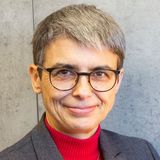
Irène Buvat, CEA Service Hospitalier Frédéric Joliot Orsay
Center for Medical Physics and Biomedical Engineering
Adjunct Professor: since 2020
A « highlight » that I remember very well is the very detailed instructions, including plenty of photographs, that I received to get to a meeting room in the huge MedUni premises. It looked like a real maze, but following the precise instructions made it easy to find my way through. And this resonates with the gist of all exchanges I have with my MedUni colleagues: in the complex and rapidly evolving field of medical imaging research, we agree on the well-defined and clear paths we want to explore.
An impressive alchemy of thoroughness, efficiency and kindness. This makes it a real pleasure to work with my MedUni colleagues, with whom I think we share many values. In the current race of breakthrough discoveries, it is often important to step back and carefully identify the roadblocks and what would be needed to make impactful contributions, and to spend time exchanging on these aspects before defining precise research projects and hiring students to work on them. Another great asset of my MedUni colleagues is the huge energy dedicated to training young professionals in the best possible way, which I just find admirable.
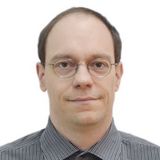
Frank Bretz, Novartis Pharma AG Basel
Center for Medical Data Science
Adjunct Professor: since 2016
Innovative statistical and data science approaches addressing the emerging challenges in the analysis of routine as well as clinical trial data are essential to foster medical progress and support policy making. With this in mind, the Medical University of Vienna brought together several hundred quantitative scientists from academia, industry, and regulatory agencies in 2017 under the theme "Quantifying Life. Advancing Research. Enabling Decisions". I will always remember the lively scientific discussions with colleagues from all over the world as well as the social program, including the welcome reception at the Great Ball Room of Vienna’s city hall and an open-ended session at a local "Heurigen".
As one of the oldest medical schools in the world, it is my honor to serve as an Adjunct Professor at the Medical University of Vienna. For more than 15 years I have been collaborating with its Center for Medical Statistics, Informatics, and Intelligent Systems, one of the leading centers for medical statistics in the world and the 'birthplace' of modern adaptive clinical trial designs. It is a wonderful place where I have benefitted so much in the past that I look to continue my engagement with the entire team around Martin Posch and Franz König.
C

Tim Clausen, Research Institute of Molecular Pathology (IMP) Vienna
Adjunct Professor: since 2017
Our group has a long-standing collaboration with Prof Dr Alwin Köhler from the Medical University (MUV). Together with Dr Fumiyo Ikeda (IMBA), we founded the so-called Ubiquitin & Friends Club in Vienna. The highlight of this Club is an annual symposium bringing together local scientist with internationally leading experts. Being affiliated with the MUV allowed us to hold this meeting at truly historical places, such as the Josephinum or the Billrothhaus, giving the come-together a very special flair. Clearly, having access to such exclusive venues was key to establish the Viennese meeting as one of most prominent symposia in the field of ubiquitin biology.
The MUV provides a modern, state-of-the-art scientific environment embedded in a historic setting. Aside being an inspiring place for top class research, the range of topics covered by the various MUV departments makes the community a unique hub for rising stars, working at the interface of medical and basic research.
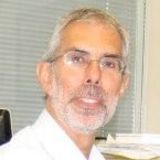
David Chambers, King's College London
Center for Biomedical Research
Adjunct Professor: since 2016
I was very proud and honoured to be conferred an Adjunct Professorship at the Medical University of Vienna in 2016, under the auspices of Professor Bruno Podesser, who is Professor of the Center for Biomedical Research. Professor Podesser and I have been collaborators for many years in respect of our mutual interest in myocardial protection during cardiac surgery. Our collaboration was particularly important when I was able to arrange for some large animal studies in Professor Podesser’s facility to extend my studies into the development of a novel cardioplegic solution (using small animal experiments) into more clinically relevant studies in large animals that confirmed the protective capabilities of this novel solution and allowed me to successfully obtain funding and approval to conduct a ‘first-in-man’ clinical study that will be conducted at St Thomas’ Hospital.
The Medical University of Vienna is one of the leading universities in Biomedical Research, and it is of significant importance for me to have an association with the University, with Professor Podesser and with the students and staff in his group. I hope to continue our collaboration and my association with the University for many years to come.
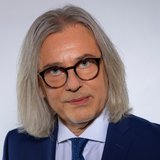
Piotr Chlosta, Collegium Medicum of the Jagiellonian University
Department of Urology
Adjunct Professor: since 2022
My personal cooperation with Medical University in Vienna started with the appointment of Professor Shahrokh Shariat as head of the Urology Department and leader of the Central European Urological Society. Cooperation during the lot of the international meetings, publications, education activity and rising standards is a great honor and pleasure for me. Active collaboration with fellows and faculty of the Department of Urology at the Medical University in Vienna has always been progressive , dynamic, inspiring, fruitful and successful.
Cooperation with outstanding people. Systematicly raising the best standards in the treatment and education in urology. This is the greatest honor and pleasure to be the member of such a prestigious Team.
D
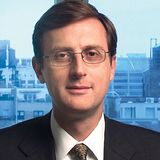
George Dangas, Icahn School of Medicine at Mount Sinai New York
Department of Medicine II
Adjunct Professor: since 2020
Active collaboration with fellows and faculty of the Department of Medicine at the Medical University of Vienna on Cardiology research subjects has always been dynamic, inspiring and fruitful.
I associate with the Cardiology Division of MedUWien. The academic rigor and clinical acumen of the Cardiology and Heart Surgery faculty of the Medical University of Vienna and the very animated debate of cutting edge aspects of coronary as well las heat valve therapies is next to none. I feel very much privileged to be part and I am happy to see the students, trainees and faculty make up a great educational and research environment.
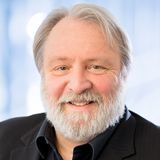
Andreas Du Bois, Evang. Kliniken Essen-Mitte Essen
Department of Obstetrics and Gynecology
Adjunct Professor: since 2016
My moment of the MedUni Vienna started much earlier than my first visit. Prof. Kölbl and myself were neighbors when he was the Ordinarius of Gynecology in Mainz and started already a friendly cooperation within several clinical studies. When I founded the AGO Study group Germany and started several international clinical trials Austria was missing at those early years. I tried to support the Austrian colleagues when they built their own AGO study group and got into contact with colleagues in Graz, Innsbruck and Vienna - Prof. Alexander Reinthaler being the most prominent partner through these years. We started cooperation in several clinical trials including our early surgical studies. Vienna became a partner and friend-institution then with several meetings and presentations both here and there. A rememberance of the great history of the Vienna University was the honour to receive the AGO Austrian Wertheim Award in 2006, a prize named after one of the greatest Gynecological Oncologists of the World - and of Vienna. A special momentum came when I gave my talk about ovarian cancer within the CCC grand rounds in the Jugendstilhörsaal, a place where probably Wertheim had also taught colleagues and students. Although it has been renovated completely, I could merely feel the spirit of great and inspirational leaders in our field of medicine, such as Ignaz Semmelweis, Ernst Wertheim, and Friedrich Schauta, who all worked and taught at the Medical University of Vienna. It was an honor and an inspiration to give a talk within this setting with a history of 650 years.
I associate with the MedUni Vienna a university with a long tradition in medicine in general and with gynecology and gynecologic oncology in particular. I also associate with the MedUni Vienna a very intense and fruitful collaboration. Within the last years we have established an exchange within the "gynecologic oncology fellowship" program with already two doctors of the MedUni Vienna training at my institution each for 18months, Prof. Christoph Grimm and Prof. Richard Schwameis. Since 2014 we have already published 11 scientific papers (eight in top-journals in the field), many abstracts and congress presentations, and currently there are five projects (three translational projects and two clinical trials) ongoing.in collaboration with the MedUni Vienna. I appreciate the MedUni Vienna as a dedicated partner in the field of Gynecologic Oncology, a reliable partner in our struggle to build evidence and improve standards in this field.
E
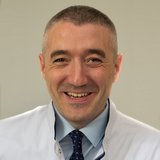
Dmitry Enikeev, Institute for Urology and Reproductive Health, Sechenov University, Moscow, Russia
Department of Urology
Adjunct Professor: since 2022
When I first visited MedUni Vienna, I have to say I was deeply impressed by the attention and care the medical staff showed to the students, patients and to one another. This patient-oriented approach, which is practiced throughout the clinical departments of University, is undoubtedly the key to creating what is surely one of the best levels of medical care in the world.
Prof. Shahrokh Shariat is the perfect example of how to combine effective clinical practice with research, and in doing so he pays great attention to personal and interactive communication with both fellow employees and patients.
I’d like to highlight the high level of expertise shown by all the clinical staff at MedUni. We, as medical practitioners, are striving to become more than just clinicians by making our clinics not just clinics, but pioneering research facilities. The advantage of MedUni Vienna is that it offers a very sound base for clinical practice but is also undertaking exciting and important research at the same time. And, most importantly, the staff at MedUni are highly motivated. They are innovative and always looking to advance their knowledge. It is a real honour to be part of such a progress-driven team.
F
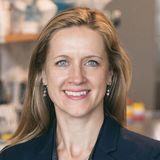
Mariella Filbin, Dana-Farber Cancer Institute Harvard Medical School Boston
Department of Pediatrics and Adolescent Medicine
Adjunct Professor: since 2020
The MedUni Vienna is where I took my first steps as clinician and pediatric neurooncologist. I joined the University right after graduating from the Medical University Graz and was thrilled to work with Prof. Irene Slavc in the laboratory and clinically for more than three years. I owe her and her team everything I know about pediatric neurooncology and would not be where I am without her mentorship, guidance and support.
With Vienna, I associate both a place of belonging — given it’s where my initial training took place — as well as excitement for what the future will bring. The new era of molecular medicine has changed pediatric neurooncology completely, and I am thrilled to work with the teams at the Departments of Pediatrics, Cancer Research, CCRI and the St. Anna Kinderspital to move the needle in a field that has yet to see significant therapeutic advances.
G
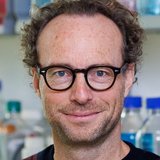
Daniel Wolfram Gerlich, Institute of Molecular Biotechnology of the Austrian Academy of Sciences
Adjunct Professor: since Nov.2023
I highly value collaborating with the exceptional colleagues at MedUni Vienna. Our joint efforts in SFBs, DKs, and informal exchanges have proven highly productive and delightful. I also very much appreciate our shared PhD program, which brings outstanding talent to our campus.
I am very impressed about the quality of research and training at MedUni Vienna. It is a pleasure to interact with our inspiring and open minded colleagues at the MedUni Vienna.
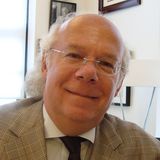
Nobert Gleicher, Center for Human Reproduction New York
Department of Obstetrics and Gynecology
Adjunct Professor: since 2016
Unquestionably the most important issue in the relationship has been my decades-long relationship with Prof. Husslein, which started in the 1970s, when both of us were training at the same time in NYC.
The second-most important event was the bridge built by Dr, Andrea Weghofer who, years ago, came to CHR for a one-year period for a joint fellowship with Yale University in reproductive genetics and, ever since, has resulted in over a decade of collaboration in research an publications.
A third milestone was a visit in Vienna that included Prof. Ali Brivanlou from Rockefeller University that resulted in expansion of the collaboration between Vienna and CHR to Rockefeller University, with which CHR has a very close research collaboration for many years. This new trifecta resulted in an ovarian research project that is still in progress at Rockefeller University.
My most remarkable professional impression regarding my relationship with Vienna and the University was receiving the Oesterreichische Ehrenkeutz fur Kunst und Wissenschaft from the President of Austria.
H

Wolfgang Henrich, Charité – Universitätsmedizin Berlin, Germany
Department of Obstetrics and Gynecology
Adjunct Professor: since 05.2024
I remember the time when I started my carrier as a young junior doctor in the 1990s. I was fascinated by the former Head of the Department in AKH Vienna Prof. Peter Husslein’s workshop on the laparoscopic treatment of ectopic pregnancies, by injection of prostaglandins, potassium or glucose into the fallopian tubes as well as the surgical treatment of the tubal pregnancy.
Since then the AKH Vienna was always present in my mind as an innovative, modern, high end clinic with an international reputation for the treatment of gynecological and obstetrical patients. The department is characterized by the highest levels of teaching, research and patient treatment.
After Professor Peter Husslein’s retirement, Professor Herbert Kiss and his team are the opinion leaders in the field of obstetrics and continue in the same vein with the tradition of providing the best quality patient care expected from a University Clinic.
For decades, the Department of Obstetrics in the Charité and AKH Vienna has an exchange program for junior and senior clinicians and researchers. Colleagues from Vienna were trained at the Charité and meetings were organized in Vienna and vice versa in Berlin with a highly distinguished academical program and social activities.
Currently, we are performing studies in the field of obstetric diabetes and the Charité Diabetes Study Group and Professor Christian Göbl from AKH Vienna have recently published several papers together in peer reviewed journals.
It is an honor for me to share in the academic and research developments of both university hospitals and I look forward to further deepening the cooperation and expanding our horizons together.
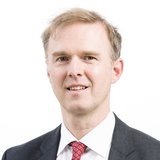
Andrew W. Horne, University of Edinburgh, Edingburgh, UK
Department of Obstetrics and Gynecology
Adjunct Professor: since 05.2024
It has been a pleasure working with members of the University of Edinburgh endometriosis research team, in particular hosting an early career clinician and researcher from Vienna at the University of Edinburgh.
I am deeply impressed by MedUni Vienna’s strong commitment to excellence in both research and teaching. The collaborative environment, where cutting-edge medical research integrates with hands-on clinical practice, creates a unique space for innovation and learning. I am particularly struck by the university's dedication to fostering an interdisciplinary approach that prepares students to be leaders in healthcare, and its emphasis on translating scientific discoveries into tangible improvements in patient care.
J
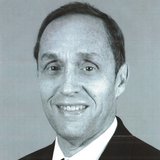
Lee Merrill Jampol, Feinberg School of Medicine, Northwestern University, Chicago, Illinois, USA
Department of Ophthalmology and Optometry
Adjunct Professor: since 2016
As the former chair of the DRCR Retina Network, a clinical trials network funded by the National Eye Institute, and a Professor at the Northwestern University in Chicago, I have been associated with the department of Ophthalmology and Optometry since 10 years ago when I did a three month mini sabbatical teaching at AKH and assisting and participating in research. Since then I have come back many times to teach and do research in Vienna. I have productive collaborations with the department in particular, Ursula Schmidt-Erfurth. We have several important publications together in the area of artificial intelligence and retinopathy.
K
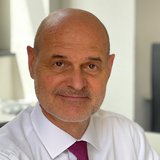
Peter G Kremsner, Institut für Tropenmedizin, University of Tübingen, Germany
Department of Medicine I
Adjunct Professor: since 2016
It is my beloved alma mater and although I have unfortunately never achieved to get a position at the University, the adjunct professorship brings me back home.
Highest quality in medical sciences and teaching as well as patients care, especially in the field of infectious diseaes and tropical medine, which I overlook best. MedUni Vienna can be congratulated to have Markus Müller, the best rector known to me!
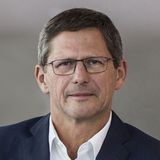
Michael Kaschke, Karlsruhe Institute of Technology
Center for Medical Physics and Biomedical Engineering
Adjunct Professor: since 2020
Throughout my career at ZEISS, I always set great store by my links to university lecturing and research, and I was fortunate enough to get to know MedUni Vienna. I can still recall the excellent, intensive and lively discussions I had with scientists and doctors during my two visits to Vienna. I was particularly impressed by the institution's culture, thirst for knowledge, and the knowledge sharing that makes it what it is. The university is characterized by how it conducts outstanding research into basic concepts while staying very close to clinical applications. Here, “From Bench to Bedside”, or the interaction between basic research and clinical application, is not merely a slogan but a part of daily life.
When I think of MedUni Vienna I associate over 30 years of outstanding collaboration with ZEISS, and before that with the University of Vienna. This collaboration between science and industry benefitted both parties tremendously. The present and future of this joint research collaboration is the ZEISS Lab at MedUni Vienna, which was opened in 2018. This collaboration began when Prof. Adolf F. Fercher moved to Vienna in the 1980s to head up the Medical Physics faculty at the University of Vienna, and subsequently of MedUni Vienna. A former ZEISS employee himself, Fercher used his visionary, groundbreaking ideas in medical optics and biophotonics to pave the way for the development of optical coherence tomography (OCT). The ZEISS IOL Master, which is used for precise and contactless eye measurements before a cataract surgery, is based on an optical coherence measuring principle ascribed to Fercher. The system was launched in 1999 and was the world's first optical biometry device for the eyes. Together with the optical coherence tomography solutions for retina and glaucoma diagnostics, it substantiated ZEISS' leading role in diagnostic ophthalmology.
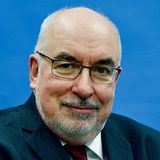
Graham Kemp, University of Liverpool
Center for Medical Physics and Biomedical Engineering
Adjunct Professor: since 2016
I’ve been collaborating on MRI-based human research with investigators based at the High Field MR Center for nearly two decades. The combination of scientific acumen, technical excellence, openness and hospitality has been a constant, and I look forward to continuing that enjoyable and productive relationship. More recently I’ve also enjoyed participating in several events in the wider Center for Medical Physics and Biomedical Engineering. The younger researchers give me great confidence in the future of both Centers.
On every visit I’ve seen something new and memorable in the University and the extraordinary city it’s part of. Professionally I’m a medical pathologist, and I also have a lifelong interest in history. I’ve therefore particularly enjoyed visiting the Pathologic-Anatomical Museum at the Narrenturm, and the remarkable anatomical collection at the Josephinum (I’m looking forward to seeing the results of the current renovation). Perhaps the highlight, though, has been the invitation to lecture at the Jugendstilhörsaal – a great honour, and an architectural delight.
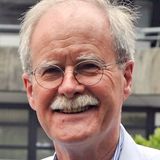
Wolfgang Koenig, German Heart Centre, Technical University of Munich
Department of Medicine II
Adjunct Professor: since 2018
Over several decades I had the pleasure to collaborate with excellent scientists and clinicians in the cardiovascular field on various aspects of atherosclerosis and its complications and I thoroughly enjoyed the strong interactions which also led to intense and long-lasting friendships with several of my colleagues.
If you think of UnivWien you are immediately confronted with the history of medicine and many great personalities having worked there like Semmelweiss and regarding my research, even more important, von Rokitanksy. In addition it has always been a pleasure to lecture in great historical environments as e.g.the van Swieten Saal and many others.
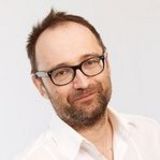
David Anthony Keays, Research Institute of Molecular Pathology (IMP) Vienna
Adjunct Professor: since 2019
The most rewarding highlight has been mentoring a number of really exceptional bachelor’s and masters students enrolled at the MedUni. It’s very satisfying to recruit students with raw talent and an imagination, and then give them the opportunity and confidence to both realise and pursue their scientific dreams.
We have worked closely with the laboratories of Egon Ogris and Thomas Leonard from the Max Perutz on a number of collaborative projects. I’ve learnt a lot from interacting with them, and it’s made me a better scientist as a consequence.
L
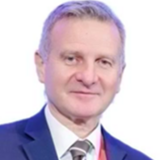
Christoph Lees, Imperial College London, London, UK
Department of Obstetrics and Gynecology
Adjunct Professor: since 05.2024
My mother studied at the University of Vienna in the 1960s and while she didn't complete her PhD in Vienna (she did in the UK many years later) she has very fond memories of her time at the University. Furthermore, a very famous alumnus of the University, Professor Oleh Hornykiewicz, was a close family friend and as a little boy who spent a lot of time in Vienna in my early years, he made a major impression on me. I suspect that his influence was consequential in my later studying medicine and undertaking my first degree in Clinical Pharmacology.
The Medical University of Vienna is one of Europe’s leading research and teaching institutions but yet retains a friendly and welcoming feel. I enjoy visiting whenever I can and am delighted to have close colleagues and collaborators with whom I undertake multicentre research.
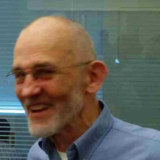
Edward F. Leonard, Center for Biomedical Engineering, Columbia University
Center for Biomedical Research,
Center for Medical Physics and Biomedical Engineering
Adjunct Professor: since 2016
I consult for the center of biomedical research, as well as Center for Medical Physics and Biomedical Engineering. In Prof. Drexler's department especially for Prof. Schima and his group. In Prof. Podesser's department, especially for Prof. Helga Bergmeister, in both cases for more than 10 years. In each case my research at Columbia and theirs has been complementary and the exchange of ideas and people has been fruitful for all of us.
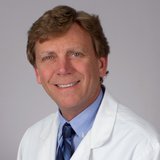
John C. Lipham, Department of Surgery, University of Southern California Keck School of Medicine
Department of Surgery
Adjunct Professor: since 02.2025
Personal Highlight would be getting to know Prof Schoppmann and his team. I first met Sebastion over 12 years ago when I visited the Medical University of Vienna to discuss a new treatment for GERD. It was a great meeting discussing the treatment of reflux disease but more importantly a friendship instantly developed with Sebastian that continues to this day.
Professional Highlight would be working with Sebastion, his team and the MUV in developing a new Medical/Surgical Society that positions Foregut (Esophageal Disease) as its own specialty both in the United States and Europe. With the help of Sebastian and MUV, we have been able to develop the American Foregut Society, and the European Foregut Society. These societies have not only been successful in positioning foregut as its own specialty, but they have been instrumental in providing the training, education and oversight for physicians to ensure that patients with Esophageal diseases get the best care possible.
M
N
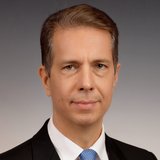
Péter Nyirády, Dept. of Urology, Semmelweis University, Budapest, Hungary
Department of Urology
Adjunct Professor: since 2022
My relationship with the Medical University of Vienna can be traced back to the beginning of my career as a urologist. One of my very first scholarship led to Professor Marberger, who was one of my boss’s best friend. I spent 3 weeks at AKH and met young colleagues who now are still working there. My relationship with Professor Shariat was linked to the period prior to his appointment as a chair. Back then, on the eve of congresses, we planned together the future of urology in a hotel lobbies. We applied for the position of head of department at a similar time.
The history and past of our universities are very similar. I am proud to be able to build Central European urology together in science, education and medicine as a friend of Professor Shariat. There is a living connection between the 2 departments and, more importantly, between our young colleagues. Numerous joint publications, organization of congresses and visits to each other's clinics are proof of our close cooperation.
I believe that Semmelweis University and Vienna University will reinforce each other in achieving the best possible results in the global university rankings in the future.
MedUni has played an extremely important role in Hungarian medical education at all ages. Ignác Semmelweis, named after my own university, graduated from MedUni and worked there.
The following Hungarian born, worldwide known and respected urologists graduated from MedUni in Vienna.
Imre Ullmann born in Pécs (1861-1937) performed the first kidney transplant in a dog in 1902.
Ottó Zuckerkandl (1861-1921) born in Győr, the first president of the Austrian Society of Urologists.
Róbert Ultzmann (1842-1889) Born in Kaschau was the first head of the first Austrian independent urological department.
At all ages, the directors of the Department of Urology, founded at Semmelweis University in 1920, had the closest collaboration with MedUni.
Shahrokh Shariat and I represent the present and I am confident that our young colleagues will ensure a successful future between MedUni and Semmelweis University.
P
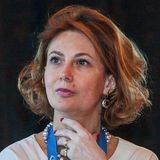
Alina Popa-Cherecheanu, "Carol Davila" University of Medicine and Pharmacy Bucharest
Department of Clinical Pharmacology
Adjunct Professor: since 2020
When I am thinking about Medical University of Vienna I am thinking about Prof. Gerhard Garhofer and Prof. Leopold Schmetterer. They taught me how to be scientifically rigorous and to think "out of the box”. They are equally top professionals and warm friends.
The most remarkable impression about Medical University of Vienna is the the highest scientific level developed in a very friendly environment.
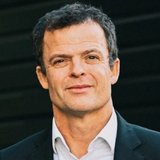
Thomas Powles, Barts Cancer Institute, Queen Mary University of London, London, UK
Department of Urology
Adjunct Professor: since 09.2024
I think three things:
1. The infrastructure of the university
2. The fellowship and development program
3. The centralization of care and the size of the practice
The engagement of the team and the output from developing oncologists.
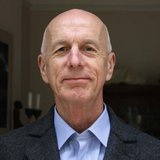
Stefan Priebe, London School of Medicine and Dentistry, Queen Mary University of London (QMUL)
Department of Psychiatry and Psychotherapy
Adjunct Professor: since 2022
In February 2016, the MedUni Vienna held a conference with the title ‘the subjective side of schizophrenia’. For my plenary presentation on the somewhat theoretical sociological concept of weak ties, I had been advised that the audience would include non-professionals. What I then encountered was a packed audience, extremely diverse with patients, interested lay people, journalists, relatives of patients, professionals with different backgrounds, managers, politicians and other stakeholders. This was true openness, inclusion and participation of all relevant groups, not just as a good intention but as a lived reality. It was also one of the most lively, interested and receptive audiences I have ever presented to, a most rewarding experience!
Over at least the 40 years that I have been in the profession, the Department of Social Psychiatry at the MedUni Vienna has consistently played a leading role in the field, with a very positive influence across the whole country (and beyond) not only in academia, but also – and arguably much more importantly – on the values and practice of everyday care in mental health.
R
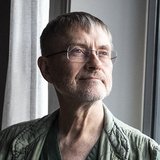
Bertil Rydenhag, Sahlgrenska University Hospital & Sahlgrenska Academy, University of Gothenburg
Department of Neurosurgery
Adjunct Professor: since 2023
The most important connection is with Professor Rössler, whom I have known for a rather long time. We work both in the epilepsy surgery community. I have also known him when he was in Erlangen. I am impressed by his work. Furthermore I know Christian Dorfer well, we are also working together in the epilepsy surgery community and especially now within the International Epilepsy Surgery society and the ESTM-activities (Epilepsy Surgery Technical meetings.
I do respect the fruitful work coming from MedUni Vienna, which is enhanced by my personal knowledge of Professor Rössler and Dr Christian Dorfer. Very structured and methodological work.
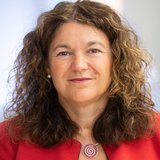
Steffi Gerlinde Riedel-Heller, University of Leipzig, Germany
Department of Psychiatry and Psychotherapy
Adjunct Professor: since 2022
When I was a young researcher in the 90s, I regularly attended the meeting in March, where scientists interested in social psychiatry from Austria, Germany and Switzerland came together. The colleagues from MedUni Vienna were strong and leading scientists in social psychiatry with most impressive and inspiring work. Over the years, relations and cooperation became closer and I am very happy to serve as adjunct professor at the department of Psychiatry and Psychotherapy at the MedUni Vienna, which has an outstanding reputation.
MedUni Vienna is an intellectual center of central Europe. It has a remarkable history in the field of psychiatry and is very well known as one of the leading institutions in the field of social psychiatry. It as an honor to serve as adjunct professor at the department of Psychiatry and Psychotherapy at the MedUni Vienna. It is a pleasure to work closely with the scientists of the department, which are strongly dedicated to social psychiatry and psychiatric epidemiology.
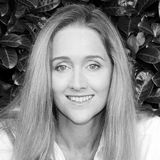
Andrea G. Rockall, Imperial College London Surrey
Department of Biomedical Imaging and Image-guided Therapy
Adjunct Professor: since 2019
I have had wonderful interactions with many colleagues from the Medical University of Vienna over the years. I have enjoyed the privilege of lecturing together with some of the Professors from the Department of Biomedical Imaging and Image-guided Therapy and have been impressed with the high quality of academic work that emanates from the department. The scientific output from the department is truly impressive, covering a wide range of imaging research.
Together we have organized several successful teaching courses. Perhaps the most memorable and unique experience was the co-ordination of the recent ESR Connect series where we jointly organized a series entitled “AI Use cases with Friends”, just prior to the pandemic. This series embraced on-line learning with full on-line engagement with quiz questions and live chat – a big step towards developing on-line teaching that we now see flourishing.
I have had the opportunity of hosting a clinical research fellow from MedUni Vienna in our department in London. This has led to our first external validation of a software tool, developed at Imperial and being tested in Vienna. The project involves radiologists, machine learning and data scientists at both sites, with joint innovations now in the pipeline - a true scientific collaboration.
The annual reception of the Department of Biomedical Imaging and Image-guided Therapy is always a highlight of the ECR week in Vienna and this has enhanced our connections, with wonderful Viennese atmosphere and friends. I consider myself extremely fortunate to be a small part of this wonderful institution.
The Department of Biomedical Imaging and Image-guided Therapy has trained a succession of true leaders in the field of radiology, not only those working in the department but also many alumni working across the world in the most prestigious institutions. The continuous quality of teaching and scientific output is a reflection of the innovative and dedicated leadership in the Department.
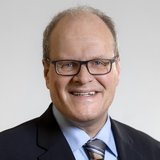
Rüdiger Rupp, Heidelberg University Hospital
Center for Medical Physics and Biomedical Engineering
Adjunct Professor: since 02.2024
Among my main areas of expertise is electrical stimulation for functional restoration of people with spinal cord injury. Only a few researchers are working on this topic and the “electrical stimulation”-family is quite small. As a young postgraduate, I was in fact introduced to this family more than 20 years ago with a European research project coordinated by people from the Center for Medical Physics and Biomedical Engineering. I still remember the high level of scientific exchange during our meetings. But I must admit that my most intense memory resulted from the social events. I will never forget the summer evenings at a Heurigen looking over the roofs of Vienna and talking to other postgraduates and senior experts with a glass of Zweigelt. The friendships formed back then still persist.
The professional cooperation with MedUni Vienna is one of my longest, still active collaborations. And there are reasons for this. I have always perceived the MedUni Vienna as an open-minded institution providing an excellent scientific and personal environment for interdisciplinary research such as Biomedical Engineering. Particularly in this field an open, trustful atmosphere is mandatory for exchange of interdisciplinary knowledge and sharing of unconventional ideas which will be the cutting edge therapies of tomorrow. A recent highlight for me in this respect was the honor to give the laudation speech for Dr. Hofstoetter and Dr. Minassian who received the research award of the Deutsche Stiftung Querschnittlähmung (DSQ).
S
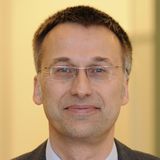
Thomas Schnalke, Berlin Museum of Medical History at the Charité
Ethik, Sammlungen und Geschichte der Medizin
Adjunct Professor: since 2018
My very moment of MedUni Vienna is surely Vienna’s outstanding medical history, collected, reflected and cared for at the superb Josephinum. With great interest I follow and—to some modest degree—advise the ongoing renovation of this unique university museum. I am convinced that the new Josephinum will become one of the key features in the international perception of MedUni Vienna in the future.
For me, MedUni Vienna forms one of the most eminent venues where modern medicine is rooted. Starting as one of the early European medical faculties, its concepts, ideas and medical practices had the utmost impact on the development of western medicine. Its famous ‘schools’ (First and Second Wiener Medizinische Schule) with prominent protagonists like Gerard van Swieten, Johann Peter Frank and Carl von Rokitansky paved the way for a truly modern way of medical thinking, research, teaching and treatment. One of most impressive and quintessential documents of the medical standards Viennese medicine continuously tried to achieve and maintain can be viewed in MedUni Vienna’s excellent Josephinum: the outstanding 18th century wax models of the complete human anatomy.

Hendrik Scholl, Belite Bio and Pallas Klinik Zurich, Switzerland
Department of Clinical Pharmacology
Adjunct Professor: since 04.2024
Together with MedUni Vienna, Southhampton, London, and Michigan we have been working together on the landmark study in the field of age-related macular degeneration to study the progression from the early and intermediate forms towards vision disabling late disease: The PINNACLE Study. We are currently investigating, if we can utilise machine learning and advanced statistical modelling as a novel approach to discover and quantify markers of pathological retinal ageing and thus predict individual progression and conversion to late disease stages. The research infrastructure and health care environment of MedUni Vienna in the field of Retina, Imaging and Artificial Intelligence are outstanding.
The Department of Clinical Pharmacology has unique expertise in early phase clinical trials in ophthalmology. The Group of Ophthalmic Pharmacology uses cutting-edge imaging technology of the eye to gain new insights into the pathogenesis of eye diseases and to develop new treatment methods. The group is also a European leader in the field of regulatory affairs. Prof. Gerhard Garhöfer has evolved as the go-to-person relating to marketing authorization by the European Medicines Agency.

Stephen Senn, Consultant Statistician, Edinburgh, UK
Center for Medical Data Science
Adjunct Professor: since 2023
It is indirectly through Professor Peter Bauer. During the period 1987-1995, when I was a statistician working for CIBA-Geigy, a forerunner company of Novartis, Peter Bauer, was known to me, all my colleagues and all pharmaceutical statisticians for the importance of his work and the excellent lectures on it that he used to give. At the time I became aware of his work he was not yet (again) in Vienna but I knew of his Viennese associations and he returned to Vienna before I left CIBA-Geigy In fact, a little time after this I took up a chair at University College London (UCL). I also started acting as an associate editor of Biometrika and a paper of Peter’s with Meinhard Kiesser landed on my desk. I immediately realised its importance and was very pleased to see it appear in Biometrika in 1996. From that point onwards, MedUni Vienna was firmly established in my mind as an important centre for biostatistics.
This is through the work of Professor Martin Posch and Professor Franz Koenig. It is my firm belief that biostatisticians should be interested in and not afraid of methodological development. The science needs to be continuously evolving. However, it is also important that biostatistics should remain grounded in practical applications. Martin and Franz have managed the bridge between the two to perfection: they have brought theory into drug regulation but used their experience of drug regulation to guide the theories they have developed. This has made MedUni Vienna one of the most important centres in Europe for regulatory statistics. I have had many interactions with the two of them over the years and it is a great pleasure to me that my appointment is strengthening this collaboration.
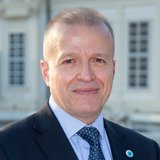
Andreas Stavropoulos, Department Of Periodontology, Malmö University, Sweden
University Clinic of Dentistry
Adjunct Professor: since 2022
When I first visited the Universitätszahnklinik at MUW for the first time, it was indeed a personal highlight. Based on the history, I was expecting to see an old building and old dental school. Wow. The Universitätszahnklinik is simply an impressive and beautiful building. Modern and classic together. Equipped with high quality infrastructure. A really enjoyable place to visit, a really nice place to work at.
The very open, positive, and polite attitude of all the people I have met at the Universitätszahnklinik at MUW, together with their hard-working attitude, is indeed remarkable. The very high quality and quantity of research output of the Universitätszahnklinik is a proof that people enjoy their jobs, enjoy what they do! There is no doubt that a great deal of this open culture and working moral, is not only routed in the very long Viennese cosmopolitan tradition and tradition for excellence, but it is also due to the paradigmatic Leadership of the Universitätszahnklinik at MUW, working hard and aiming high!
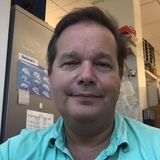
Hinrich Staecker, University of Kansas Medical Center
Department of Otorhinolaryngology
Adjunct Professor: since 2016
Over the last 15 years, it has been my pleasure to work with members of the Department of Otolaryngology at MedUni Vienna on both clinical and basic research projects. These interactions have not only been professionally very productive but have also led to longstanding friendships.
Under the leadership of Prof. Gstoettner the Department of Otolaryngology continues to innovate in the field of hearing healthcare. They have developed novel approaches to treating deafness and are at the forefront of implantable device technology for this application.
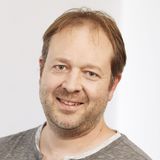
Alexander Stark, Research Institute of Molecular Pathology (IMP) Vienna
Adjunct Professor: since 2017
I thoroughly enjoy my interactions and collaborations with the outstanding colleagues of the MedUni Vienna. Our shared DKs, SFBs and informal interactions have been very productive and simply wonderful; and I very much look forward to our shared PhD program that we established over the past months.
I have always had the very best professional impressions of my colleagues from the MedUni Vienna. Over the past months, I have been especially impressed by our common vision and collaborative effort to establish a novel shared PhD program and thus ensure the continuous excellent and modern PhD education in Vienna.
T
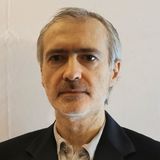
Andrea Tura, Institute of Neuroscience IN-CNR Padova
Department of Obstetrics and Gynecology
Adjunct Professor: since 2020
I came to MedUni Vienna for the first time several years ago. I was surprised by its dimensions, but I remember that it was easy to reach the building, and then the floor (a high one, in the green tower) where I had to attend a meeting. In general, I immediately had the impression that, despite the size, activities were organized with high efficiency. Such impression was confirmed in the following years, given the high quality of the research activities of MedUni Vienna, to which I have always tried to cooperate to the best of my capacities.
My professional impression about MedUni Vienna is of an Istitution carrying on research activities at the top-level in different fields.
Indeed, I had the opportunity to collaborate with different Colleagues at MedUni Vienna, and in many occasions we published the common research studies in very good Journals. Most relevant collaborations have been with Dr. Christian Göbl, at the Division of Obstetrics and Feto-Maternal Medicine, Department of Obstetrics and Gynecology, as well as with Prof. Manfred Hecking, Prof. Alexandra Kautzky-Willer and Colleagues, at the Department of Internal Medicine III. Given the high quality level of the MedUni Vienna research, my goal is to continue and further strengthen the indicated collaborations.
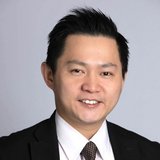
Jeremy Yuen-Chun Teoh, Faculty of Medicine, the Chinese University of Hongkong
Department of Urology
Adjunct Professor: since Oct. 2023
Prof. Shariat has always been an inspiration for young researchers in the urology field, and I always look up to him as I develop my academic career. I am glad our paths finally crossed as we share similar interests in urological cancers, and I would describe our collaboration in two simple words – Science & Friendship.
I have worked with Prof. Shariat’s team for the past few years, and I have enjoyed our collaboration thoroughly. We share a common goal, and that is to make an impact to the urology field. I am also constantly impressed by the quality of his fellows’ research work, which reflects how much time and effort Prof. Shariat has devoted in nurturing young talents.
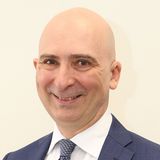
Maurizio S. Tonetti, Shanghai Jiao Tong School of Medicine
University Clinics of Dentistry
Adjunct Professor: since 2018
I have had the privilege of knowing well two generation of academic clinicians at the MedUni Vienna. They are and have been great Colleagues but I have always been most impressed by the cadre of younger staff. They are curious, engaged, passionate, skilled and fun to discuss and work with… the perfect mix of Germanic efficiency and Italian flair that I think is a true recipe of innovation and excellence.
The day of my inaugural lecture I was most impressed by the facility of the Dental School: a superb, modern state of the art facility immersed in an historic building. Rarely have I seen such an example of modern functional architecture rooted in the long history of Viennese Medicine. As the impression for the facility faded, a new dimension appeared clearly: the impressive care and learning pathways that animated the building. Well done!
W
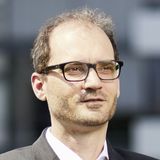
Nikolaus Weiskopf, Max Planck Institute for Human Cognitive and Brain Sciences Leipzig
Center for Medical Physics and Biomedical Engineering
Adjunct Professor: since 2020
I have been thoroughly enjoying the collaborations on MRI with different scientists at MedUni Vienna over the past 10 years. They delightfully pair scientific excellence with professionalism and friendliness.
I associate long-standing cutting edge research on 7T MRI with MedUni Vienna, covering a very broad range of topics from methods development to applications.
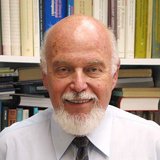
Isaac P. Witz, Tel Aviv University, Israel
Center for Cancer Research
Adjunct Professor: since 05.2024
I met Prof. Michael Micksche from the Center for Cancer Research of the University of Vienna in 1979 in a cancer research conference that took place in Vienna. Michael and I became friends and scientific collaborators. As a result, I became a visiting Professor at the Center during the years 2000-2005 for periods of several months each year.
My visits at the Center for Cancer Research generated fruitful multifaceted collaborations.
At the scientific level, my lab obtained several human melanoma cell lines, which served in studies on the crosstalk between brain-metastasizing melanoma cells and the brain microenvironment. An example of such studies is a paper published in 2015 coauthored with the research groups Michael Micksche and Walter Berger (Kahana, O. et al. Oncogene, 2002; Izraely S. et al. Int. J. Cancer, 2015).
In 2012, Dr. Michael Grush from Prof Berger’s group spent three months in my lab in Tel Aviv.
During my sabbatical stays at the Cancer Center, I served as reviewer in Prof. Zielinski’s “Initiative Krebsforschung” program that funded promising research proposals from the Vienna center.
As the Founding President of the Tel Aviv University Cancer Biology Research Center, I imitated collaboration between the Tel Aviv and the Vienna Centers. Several mutual visits of Viennese researchers in Israel and of Tel Aviv resechers in Vienna took place (see for example Izraeli S, Witz I, Micksche M. Cancer research--from bench to bedside. Isr Med Assoc J. 2002).
On October 23, 2011 Tel Aviv University’s Cancer Biology Research Center and the Comprehensive Cancer Center of the Medical University of Vienna signed a cancer-research cooperation agreement. The signing took place at Tel Aviv University. The Rector of Tel Aviv University and Prof. Christoph Zielinski signed the agreement on behalf of their respective centers.
Z

Peter Zilla, Department of Cardiothoracic Surgery, Groote Schuur Hospital, University of Cape Town
Center for Biomedical Research
Adjunct Professor: since 2022
My personal highlight was my training to become a Cardiothoracic Surgeon at the Med.Univ.of Vienna in the 1980s. It was a pioneering era where Vienna wasn’t only a front-line key player in the field of artificial heart research but also allowed me to team up with great surgeons like Prof. Manfred Deutsch to pioneer the concept of tissue engineering of cardiovascular implants and carry it over into clinical practice in > 400 patients.
My most remarkable professional impression was the leadership of the then head of department, Prof.Ernst Wolner, who created unprecedented research and growth opportunities for us at a very early stage of our careers. His guiding principle for academic clinical medicine was to require from young aspiring surgeons three years dedicated to basic science before commencing their surgical residency. This did not only catapult Vienna’s Department of Cardiothoracic Surgery into a top international league but created personal foundations for each resulting in a majority of us becoming head of departments, from San Francisco to Innsbruck, Nuremberg, Cape Town, Salzburg, Frankfurt and many more.
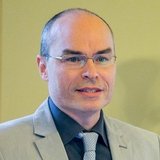
Prohászka Zoltán, Department of Medicine and Hematology, Semmelweis University, Budapest, Hungary
Department of Medicine III
Adjunct Professor: since 2016
As the head of the Research Laboratory and George Füst Complement Diagnostic Laboratory at the Department of Internal Medicine and Hematology at Semmelweis University, and laboratory consultant for thrombotic microangiopathies, I started the complement diagnostic collaboration with colleagues in the clinical devision of Nephrology and Dialysis at the department of Medicine III, as well as colleagues at the department of Pediatrics in 2011. The collaboration resulted in the workup of more than 300 samples of patients with rare forms of complement mediated kidney diseases. The clinical diagnostic collaboration, discussions and visits led recently to the publication of 13 joint papers on various aspects of thrombotic microangioipathies and complement related pathologies.
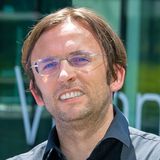
Johannes Zuber, Research Institute of Molecular Pathology (IMP) Vienna
Adjunct Professor: since 2017
Besides the birth of my children, the most impressive personal highlights connected with MedUni were interactions with medical students and young scientists who are fascinated and eager to learn about new possibilities in biomedical research.
Among many collaborations, the most remarkable started even before I moved to the IMP - when I was still at Cold Spring Harbor Laboratory and reached out to Prof. Valent about evaluating emerging BET bromodomain inhibitors. In record time, Prof. Valent’s team compiled a comprehensive dataset on leukemia patient samples, which not only resulted in a first of many joint publications but also defined the starting point of a long and very successful collaboration in an FWF-funded research consortium (SFB F47 Myeloproliferative Neoplasms). This provided a truly smooth landing in Vienna and testifies to the unique collaborative spirit at the MedUni.